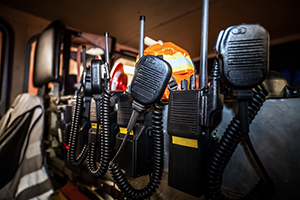National lung cancer screening guidelines are inadequate to diagnose patients who contract lung cancer from occupational exposure, including first responders, according to a study reported by Vershalee Shukla, MD, at the International Association for the Study of Lung Cancer’s (IASLC) North America Conference on Lung Cancer (Abstract OA02.07).
The United States Preventative Task Force recommends annual lung cancer screening with low-dose computed tomography (CT) in adults aged 55–80 years old who have a 30-pack per year history of smoking and are currently smoking or quit within the past 15 years. However, 30% of lung cancers are attributed to occupational exposure, including those found in first responders.

Photo credit: Getty
A large study conducted by the National Institutes of Occupational Safety and Health found that first responders have a 14% increased risk of dying from cancer compared to the general population. Recently, the incidence of lung cancer among 9/11 first responders is increasing and expected to continue to rise in the next 10 years.
“Current practice for lung cancer screenings in most U.S. fire stations include a chest x-ray every 5 years, but low-dose lung CT is underutilized,” said Dr. Shukla. “First responders can only obtain a low-dose lung CT at 55 and older per current cancer screening guidelines.”
Study Findings
To address this, Dr. Shukla and her team screened 350 first responders aged 27 to 76 years old. Of the 195 patients scanned, 86 (44.1%) patients had abnormal findings in their scans. Average age of patients with abnormal scans was 51 year old, their average years of service were 24.5, and 185 (95%) patients were male. One hundred and thirty-three pulmonary nodules were found, along with evidence of inhalation injury in five patients. An abnormal finding or a positive finding warranted additional close monitoring with another low-dose lung CT in 3-, 6- or 9-month intervals or a study that prompted further diagnostic work-up with positron emission tomography/CT and or biopsy, she said.
“This study demonstrates value for low-dose CT as a screening modality for first responders, who are often diagnosed with lung cancer earlier than smokers for various reasons and therefore screened earlier in this study. The very early results are promising, and ongoing follow-up will likely lead to further diagnosis of early lung cancer. This is a small study and warrants further investigation on a larger scale,” said Dr. Shukla.
Disclosure: For full disclosures of the study authors, visit naclc.iaslc.org.

